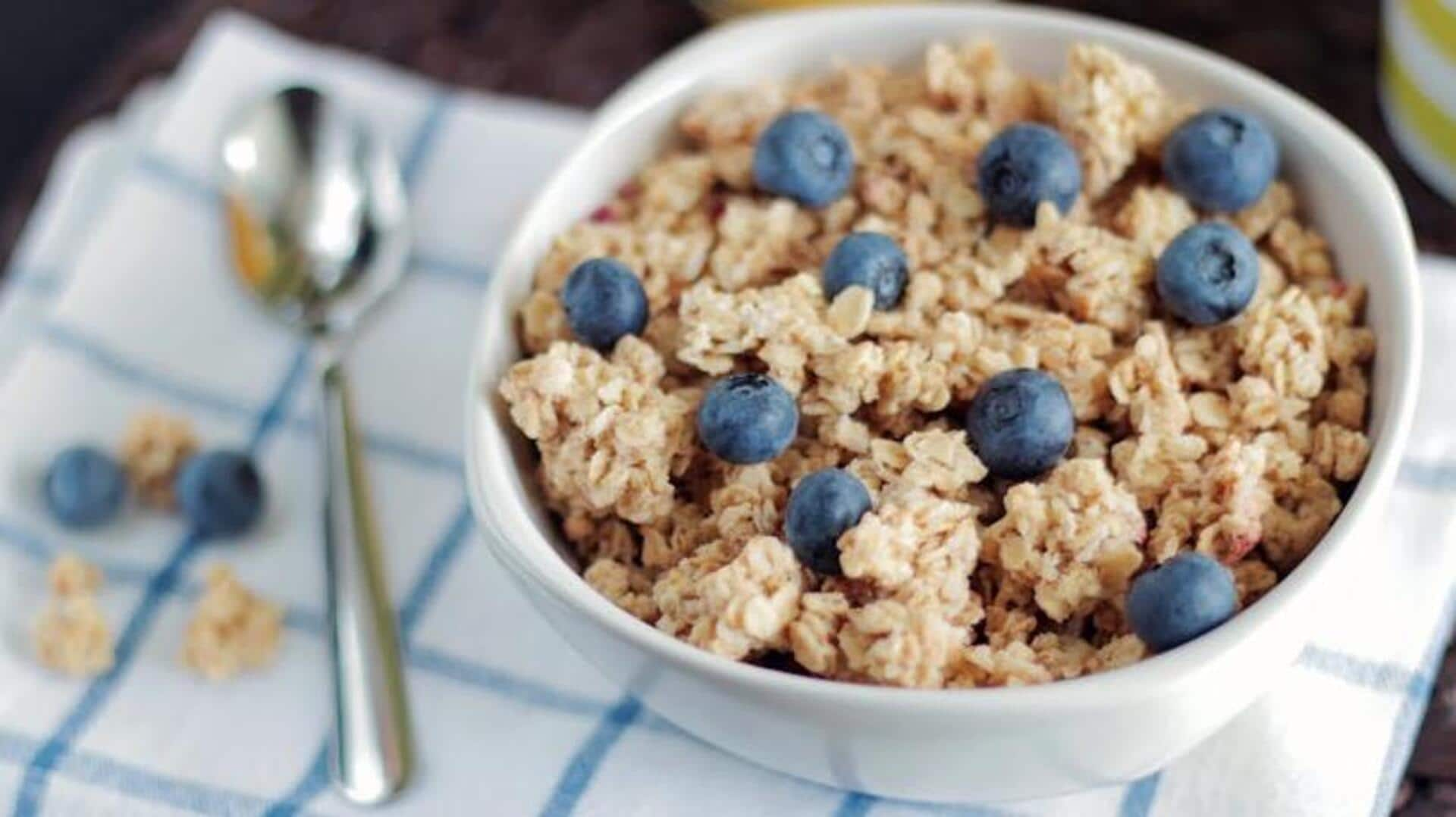Say goodbye to stress with these magnesium-rich breakfasts
What's the story
Do you want to reduce stress in an easy way? Start your day with a magnesium-rich breakfast.
Magnesium is an essential mineral that plays a key role in brain function and mood regulation.
Including magnesium-rich foods in your breakfast may promote relaxation and make you feel better.
Here are some easy ways to add magnesium-rich foods to your breakfast.
Drive 1
Oats for a calming start
Oats are another excellent source of magnesium, offering about 27% of the daily recommended intake per cup.
They are also loaded with fiber, which can help keep your blood sugar levels steady all morning.
A bowl of oatmeal, topped with fruits or nuts, can be nutritious and filling, giving you a calm start to your day.
Drive 2
Nuts and seeds boost
Nuts and seeds like almonds, cashew, and pumpkin seeds are loaded with magnesium.
A single ounce of almonds alone packs up to 20% of the daily recommended intake.
Tossing these into your breakfast cereal or yogurt will not just amp up the taste but also make a considerable addition to your magnesium intake.
Drive 3
Leafy greens smoothie
Leafy greens such as spinach and kale are loaded with magnesium, thus making them perfect for smoothies.
One cup of cooked spinach gives around 39% of the daily recommended intake.
When blended into a smoothie with fruits like bananas or berries, these greens form a nutrient-dense drink that helps combat stress.
Drive 4
Whole grain bread options
Whole grain bread is another good source of magnesium, providing about 24% per slice depending on the type.
Choosing whole grain toast instead of white bread can boost your mineral intake as well as that of fiber and nutrients, in general.
Pair it with avocado or nut butter for added benefits.
Drive 5
Incorporating legumes at breakfast
Legumes like lentils and chickpeas provide generous magnesium, along with protein and fiber.
Adding them to breakfast items like savory pancakes or spreads can help you mix up your meals while enhancing their nutritional value.
A half-cup serving usually gives about 18% to 20% of the daily recommended intake.
